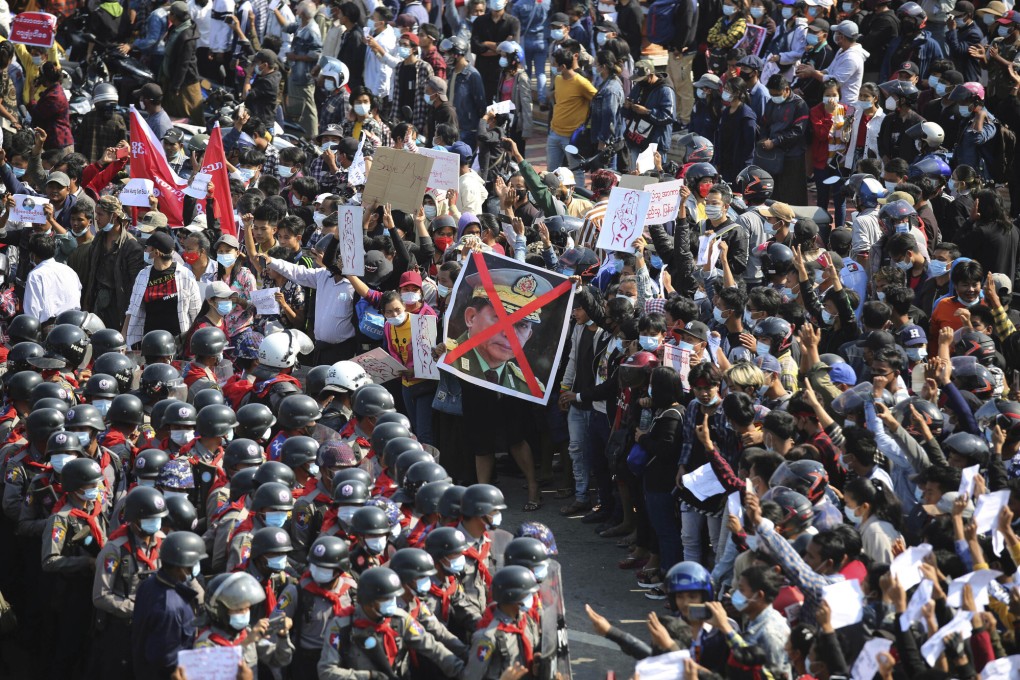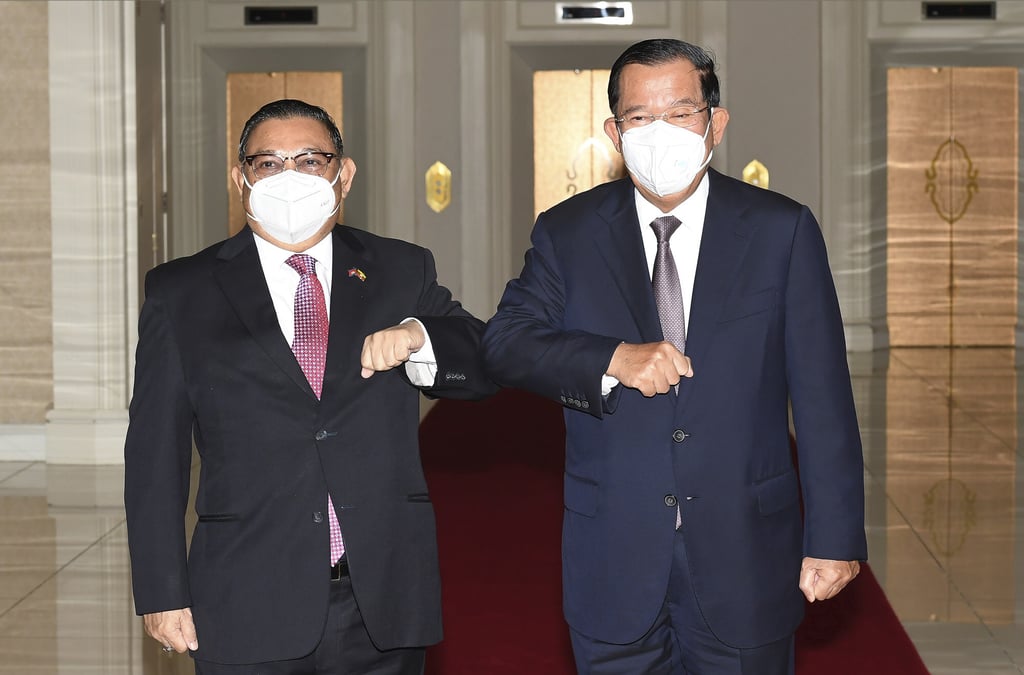Advertisement
Asean postpones foreign ministers’ meeting amid divide over Myanmar’s military rulers
- Cambodia’s chairmanship of the Southeast Asian bloc is off to a rocky start as differences deepen over how to engage the junta in post-coup Myanmar
- Phnom Penh puts reschedule of Siem Reap retreat down to clashing appointments – observers say ministers are protesting at Cambodia’s invite to Wunna Maung Lwin
Reading Time:3 minutes
Why you can trust SCMP
2

Cambodia’s year-long chairmanship of the Association of Southeast Asian Nations (Asean) has got off to a rocky start, after it indefinitely postponed an upcoming foreign ministers’ meeting amid signs of a deep divide in the bloc over the handling of Myanmar’s military rulers.
The Cambodian foreign ministry said the January 19 retreat expected to be held in the resort town of Siem Reap had to be postponed as several ministers had difficulty attending the talks in person.
A new date for the meeting was not set.
Advertisement
In Malaysia, a spokesman for Foreign Minister Saifuddin Abdullah said he was unable to attend the meeting due to an emergency parliament session on the country’s recent floods.
Nonetheless, diplomatic observers suggested foreign ministers such as Saifuddin were possibly avoiding the meeting as a means of protest against Cambodia’s purported plan to invite Wunna Maung Lwin, the foreign minister of Myanmar’s junta, to the Siem Reap meeting.

Advertisement
Select Voice
Select Speed
1.00x